South Korea's far-right party, the Our Republican Party, has been founded twice historically.
South Korea's far-right party, the Our Republican Party, has been founded twice historically.
Republican can refer to:

The 1980 United States presidential election was the 49th quadrennial presidential election. It was held on Tuesday, November 4, 1980. Republican nominee Ronald Reagan defeated incumbent Democratic president Jimmy Carter in a landslide victory. This was the second successive election in which the incumbent president was defeated, after Carter himself defeated Gerald Ford four years earlier in 1976. Additionally, it was only the second time, and the first in nearly 100 years that a Republican candidate defeated an incumbent Democrat. Due to the rise of conservatism following Reagan's victory, some historians consider the election to be a political realignment that marked the start of the Reagan Era.
Republican Party is a name used by many political parties around the world. It most commonly refers to:

The 2004 Republican National Convention, the presidential nominating convention of the Republican Party of the United States, took place from August 30 to September 2, 2004 at Madison Square Garden in New York City, New York. The convention is one of a series of historic quadrennial meetings at which the Republican candidates for president and vice president, and party platform are formally adopted. Attendance included 2,509 delegates and 2,344 alternate delegates from the states, territories and the District of Columbia. The convention marked the formal end of the active primary election season. As of 2019, it is the most recent major-party nominating convention to be held in New York City.

The United States Senate elections of 1940 coincided with the election of Franklin D. Roosevelt to his third term as President.

The United States Senate elections of 1936 coincided with the reelection of President Franklin D. Roosevelt. The Great Depression continued and voters backed progressive candidates favoring Roosevelt's New Deal in races across the country. The Democrats gained 5 net seats during the election, and in combination with Democratic and Farmer–Labor interim appointments and the defection of George W. Norris from the Republican Party to become independent, the Republicans were reduced to 16 seats, the most lopsided Senate since Reconstruction.
The 1928 United States House of Representatives elections was an election for the United States House of Representatives in 1928 which coincided with the election of President Herbert Hoover.

Elections to the United States House of Representatives in 1916 were held for members of the 65th Congress, coinciding with the re-election of President Woodrow Wilson.

Elections to the United States House of Representatives in 1914 were held in the middle of President Woodrow Wilson's first term for members of the 64th Congress.

Elections to the United States House of Representatives in 1910 were held for members of the 62nd Congress, in the middle of President William Howard Taft's term.
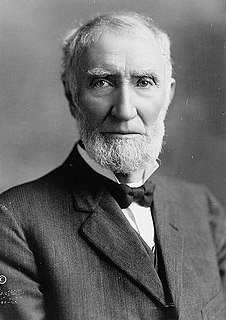
Elections to the United States House of Representatives held in 1902 occurred in the middle of President Theodore Roosevelt's first term, about a year after the assassination of President William McKinley in September 1901.

Elections to the United States House of Representatives were held in 1900 for members of the 57th Congress, coinciding with the re-election of president William McKinley.
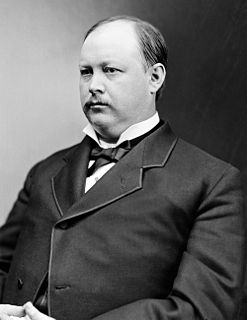
Elections to the United States House of Representatives were held in 1896 for members of the 55th Congress, coinciding with the election of President William McKinley.

The 1894 United States House of Representatives elections were held from June 4, 1894 to November 6, 1894, with special elections throughout the year. Elections were held to elect representatives from all 356 congressional districts across each of the 46 U.S. states at the time, as well as non-voting delegates from the inhabited U.S. territories. The winners of this election served in the 54th Congress, with seats apportioned among the states based on the 1890 United States Census.
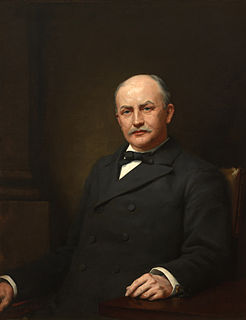
Elections to the United States House of Representatives were held in 1890 for members of the 52nd Congress, taking place in the middle of President Benjamin Harrison's term.

Elections to the United States House of Representatives held in 1888 were held to choose members of the 51st Congress, and were held at the same time as the election of President Benjamin Harrison.
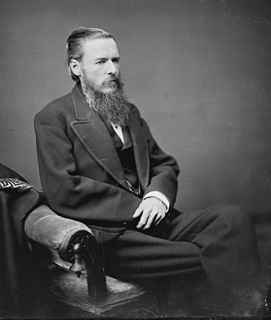
Elections to the United States House of Representatives were held in 1874 and 1875 for Representatives to the 44th Congress, occurring in the middle of President Ulysses S. Grant's second term with a deep economic depression underway. It was an important turning point, as the Republicans lost heavily and the Democrats gained control of the House. It signaled the imminent end of Reconstruction, which Democrats opposed. Historians emphasize the factors of economic depression and attacks on the Grant administration for corruption as key factors in the vote.

The Maine Republican Party is an affiliate of the United States Republican Party in Maine. It was founded in Strong, Maine, on August 7, 1854.
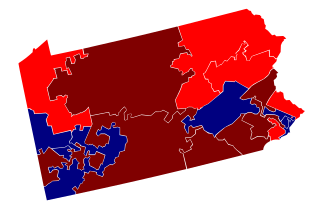
The 2010 congressional elections in Pennsylvania were held on November 2, 2010. Pennsylvania had nineteen seats in the United States House of Representatives. The election was held on the same day as many other PA elections, and the same day as House of Representatives elections in other states. Party primary elections were held May 18, 2010.
Arthur Joseph Jones is an American neo-Nazi and perennial candidate. After running unopposed in the primary election, he was the Republican candidate for Illinois's 3rd congressional district in the November 2018 midterm elections, losing to Democrat Dan Lipinski.